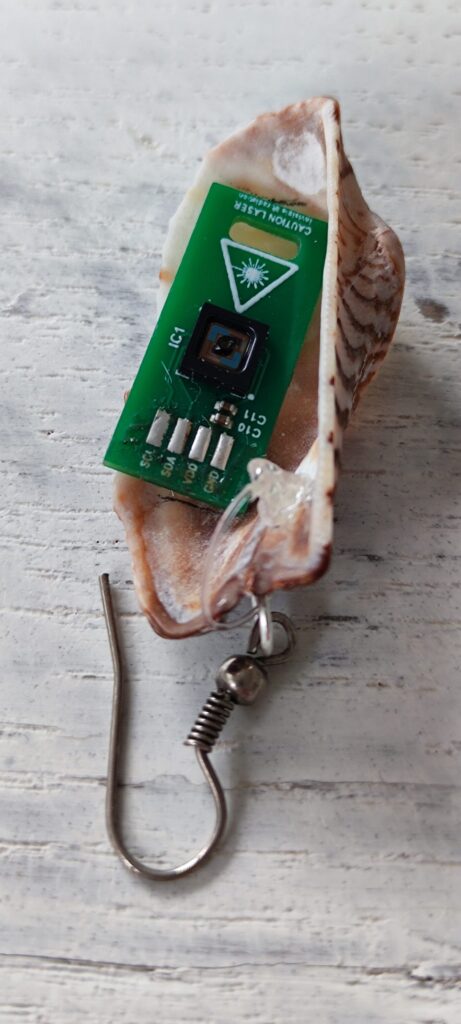
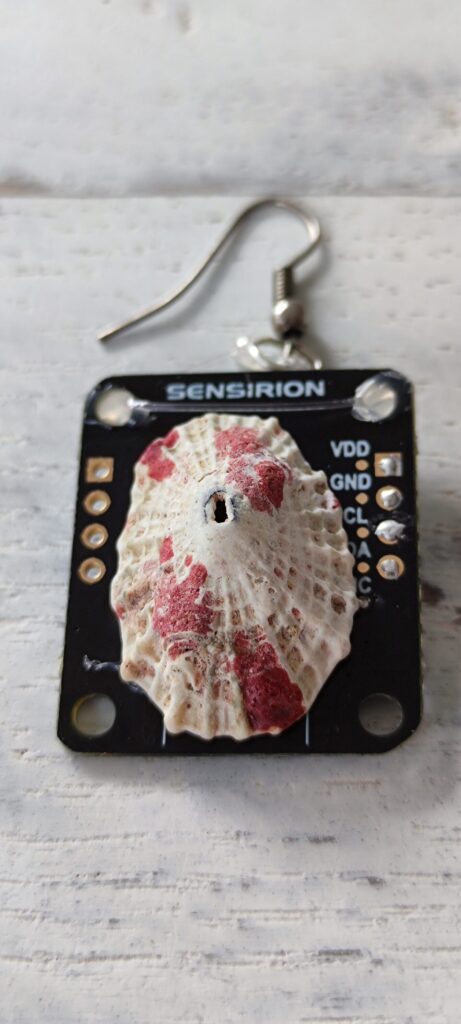
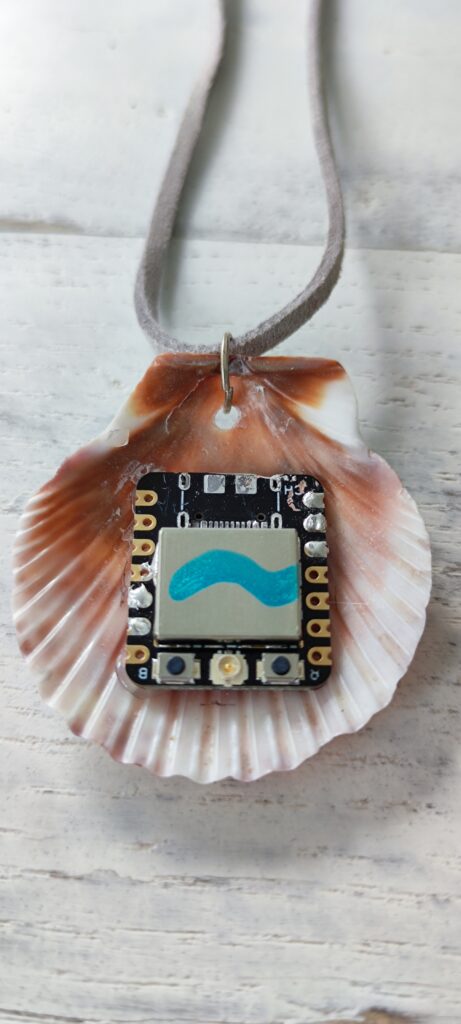
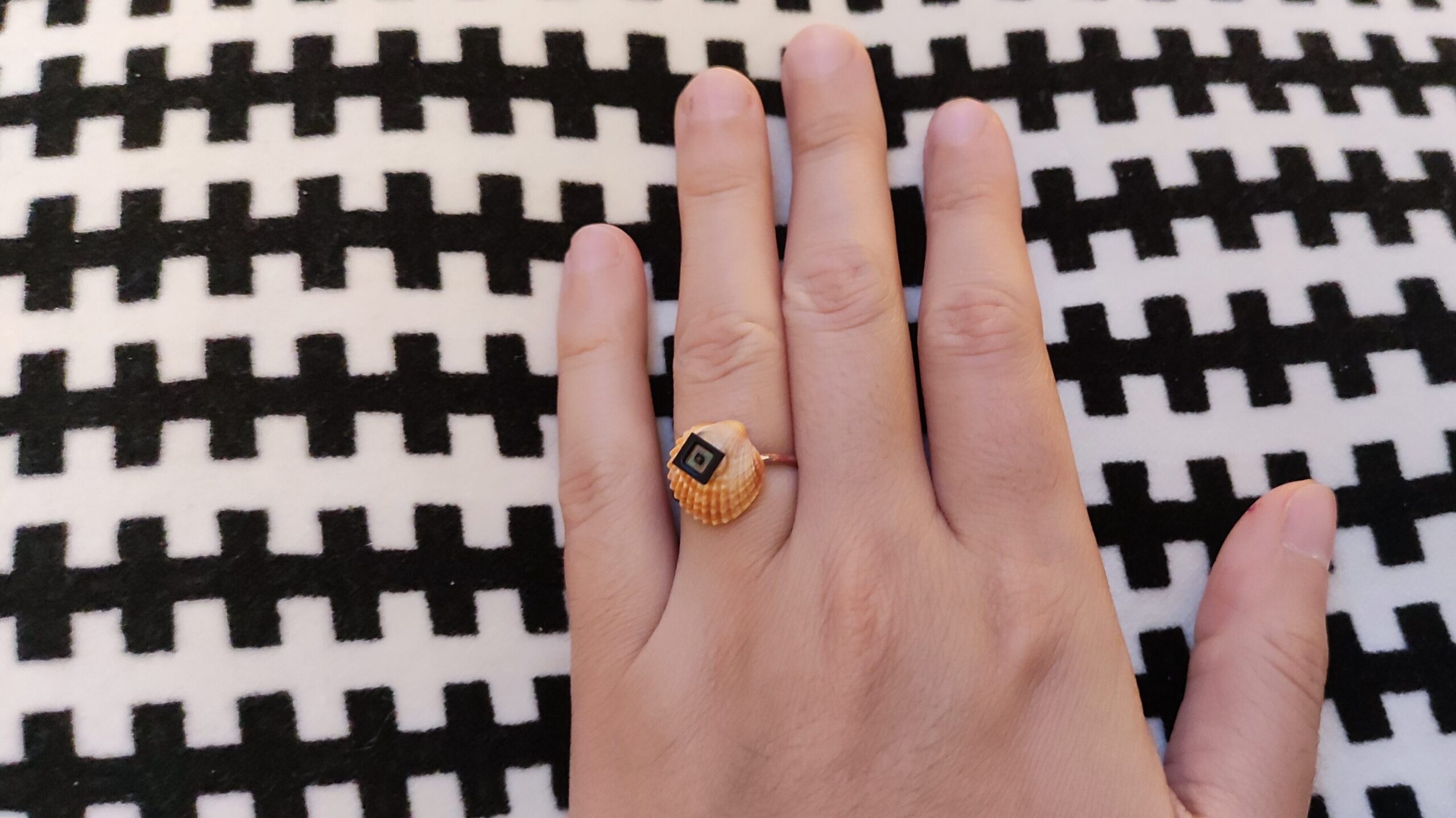

Let me first introduce you my latest jewellery collection Sensors from the sea. Since I accidentally harmed the electronics at work, I felt responsible to give them a life after death in Silicon heaven. They also inspired me to write my first sci-fi story. Dive in!
~~~~~~~~~
“Meteorology is dead. I don’t even remember the exact moment when this happened. Well, that’s what makes a new technology so effective. You don’t realize that it penetrated your life like a mosquito bite. You may notice the itchy old habits for a few days, but eventually you fully absorb it. Scratching makes it worse, better don’t complain. When you wait for some time, you won’t be able to use your old personal devices anymore. I learned to transition sooner rather than later, it saves me the annoying hiccup of rebooting myself again. Hmmm, now I’m still thinking of mosquitoes – why the hell do they still exist? We need mosquitoes in the ecosystem, they say. Thousands of years of evolution and us, humanoids, gracefully managed to take control of our environment. If nature doesn’t balance the world anymore, let’s rave about a new world without mosquitoes! Let me file a bug complaint.”
In the late 21st century, the climate change had become unbearable. Humans got accustomed to the comfort of their indoor environments and avoided dealing with weather at all costs. The climate change used to demonstrate itself as a few extraordinary events, but eventually randomness overturned the basic climate pattern.
There is a typical idiom from the mid-21. century describing something impossible – I’ll meet you when the rain falls back to the sky. Young women in particular adopted this phrase into their dating lives.
However, on 21st September 2098, hurricane Greta shocked the inhabitants of the greater London area by raining upwards. This spectacle made a deep impression all over the world. Reactions ranged from awe, to fear, and anger. There are statistics on how many women kept their promise and went on an impossible date. “Greta babies” are one of the most curious creatures on the planet.
Since “raining upwards” ceased to be a figure of speech, public started believing in climate change. Climatologists started to be taken seriously and invited to popular channels to share their vision of inevitable doom. Politicians finally started reading scientific reports from their advisors. Public also did a quick research on the topic and immediately demanded solutions and effective actions.
A few months later, Adam Sanchez, the vice-president of the Green Cross, made his legendary speech at the turn of the century. He had his speech prepared months in advance, but he wasn’t satisfied with the content. He knew that public wanted more than promises. What they needed the most these days was hope. Hope that they would survive strikes of the raging climate and pull of the demanding technology. As he was standing in front of the hopeful crowd, he suddenly felt the idea kickin’ in. It was too painful to ignore. Stronger he tried to focus on his speech, stronger the idea snowballed through his mind. At some point he couldn’t resist anymore and he had to stop in the middle of a sentence. The words that came out afterwards had an unforeseen power to change the course of history.
In his passionate speech Adam explained: “We are the generation of the 22nd century. We will not be at the mercy of Mother nature anymore. The previous generations, all of us, we have irritated her so much that both parties have to suffer. Plus, we ignore how much suffering we have caused! We are mad, she is mad, how do we communicate instead? This may seem like a point of no return. (short pause) I am a Mexican family man, and trust me folks, I know how easy it is to lose connection to your dear ones. Do you believe that the truth comes out in anger? I don’t. Every injured creature will attempt to defend itself. We all say things we don’t mean in anger. We may apologize, but the damage is done… (pause) Contrary to many of you, I don’t believe that Mother nature is trying to eradicate us. Don’t forget that she’s still our mother. We must give her some time and space to calm down. Let her come into our homes and into our hearts again. How? Let’s take a step back. (increasing the speech tempo) People used to live surrounded by parks and wild nature. Let’s each one of us grow a plant in our cubicle. Leave some houses abandoned. Remove the walls between us and the jungle (almost shouting, crowd cheering)! (long pause, Adam is wiping his tears, continues in a hopeful voice) We must learn how to talk to nature again. We don’t speak the same language anymore. We don’t understand each other. We are here, now, standing on the brink of change. We promise you nature, we will listen! Don’t give up on us! Let’s talk! Let’s talk! Let’s talk (crowd in ecstasy)!”
The task of listening to nature was given to scientists – people who had already been listening to her for years. Climatologists were awarded the advance Nobel prize in peace to find a communication channel with Mother nature.
What they came up with all falls under the famous project Hiffie – (Hear Instead of Fear, Feel Into Earth). Millions and millions of sensors were placed in every angle of the globe to monitor temperature, humidity, pressure and many other environmental parameters. The Siberian savannah became a photo model for the project – a vast grassland dotted with green cylinders. Sensors were powered by traditional technologies like solar, wind and hydropower. It took a decade to sufficiently cover the Earth’s land, seas and atmosphere. Powerful quantum computers were deployed to analyze the immense amount of data. As a result, the computers learned the climate patterns and were able to predict the climate change years into the future. Humanoids had definitely mastered the art of survival on the planet. New cities were built to relocate the population from future flood zones. Enormous wind breaks were installed around hurricane sources. Drinking water reserves were conserved in safe locations.
As time passed by, computers understood the climate so well that they didn’t even need the environmental sensing data anymore. Millions of sensors deployed in the field became quickly obsolete and were scheduled for the end of life. Computers decided to send robots to clean up the Earth. Thousands of robots have started to work their way through sensor-contaminated nature. The retracted sensors peacefully awaited death by recycling.
The robots have done a great job at cleaning nature from the old technology, but the task was far from over. To everyone’s surprise, in many cases, nature has found its own way to recycle the technology. Marine creatures managed to reuse silicon to reinforce their shells. Small birds were suddenly able to migrate and rest on the Hiffie air stations. Soil sensors became orientation points for rodents. Therefore, scientists commanded to abandon the cleanup operation.
Eventually, computers were able to control the weather on the planet. Harmony was established through a controlled chaos. Computers speak the nature’s language, but do they really understand? They can listen, but is Mother nature free to talk?
~~~~~~~~~
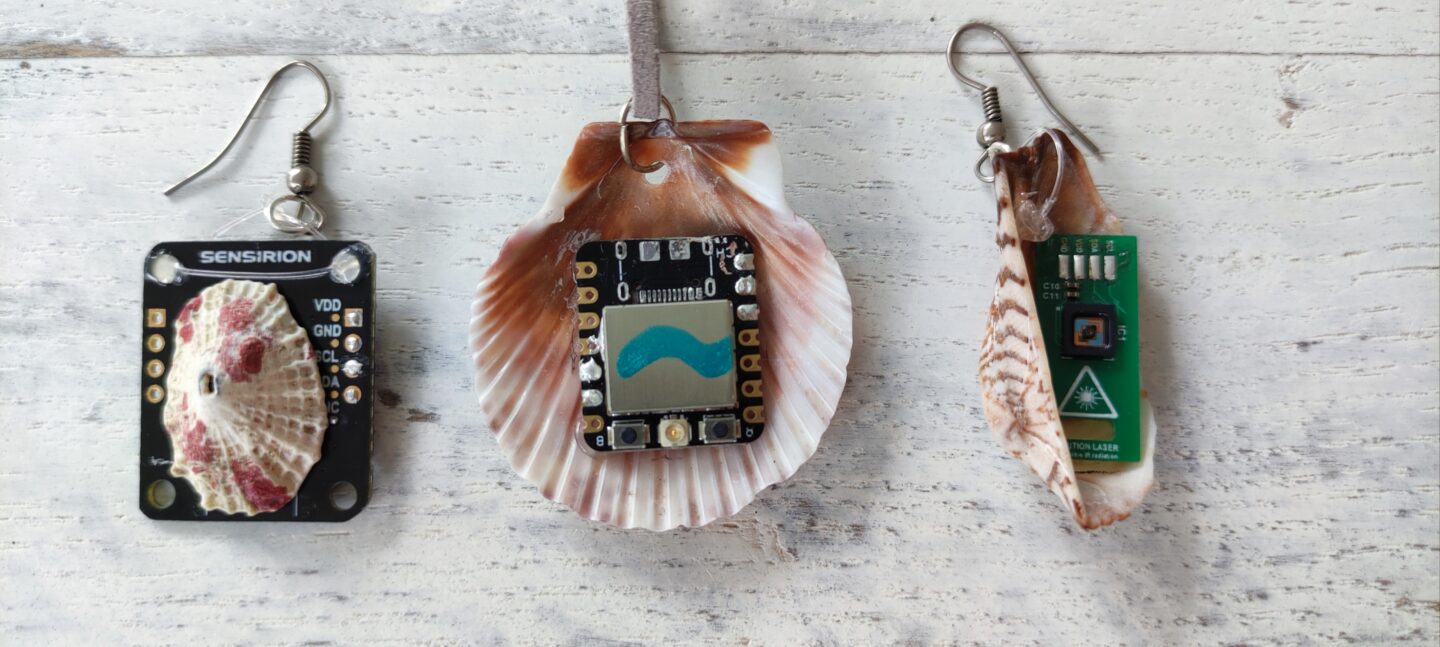
Leave a Reply